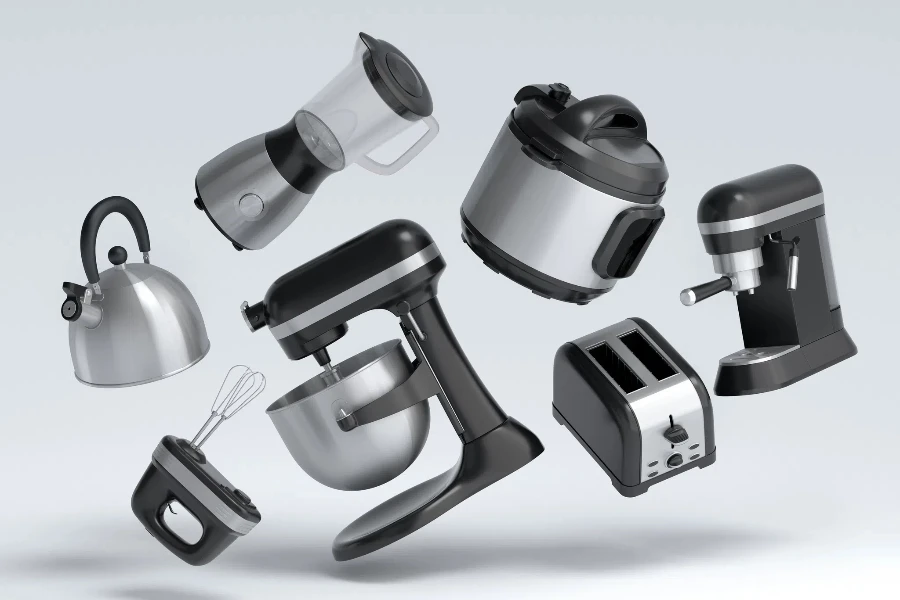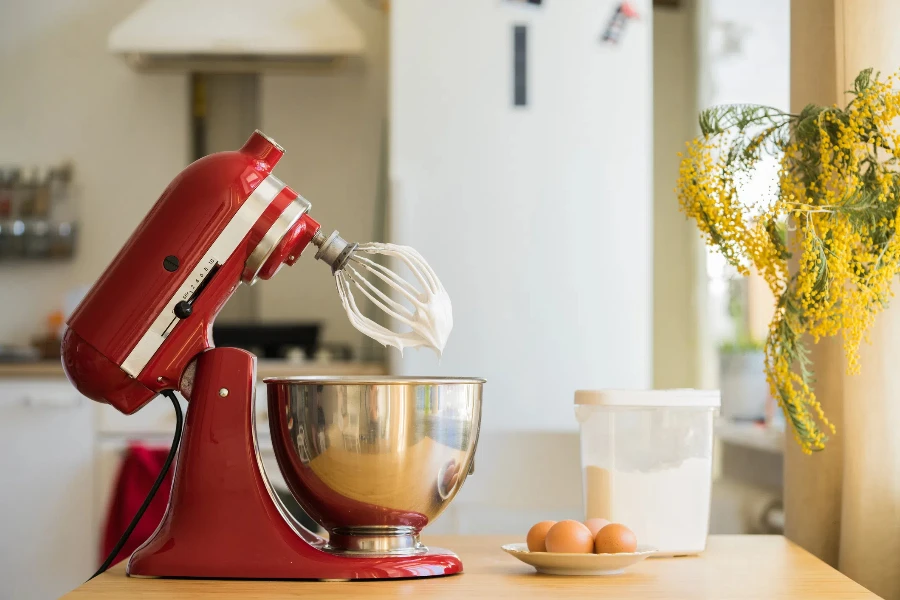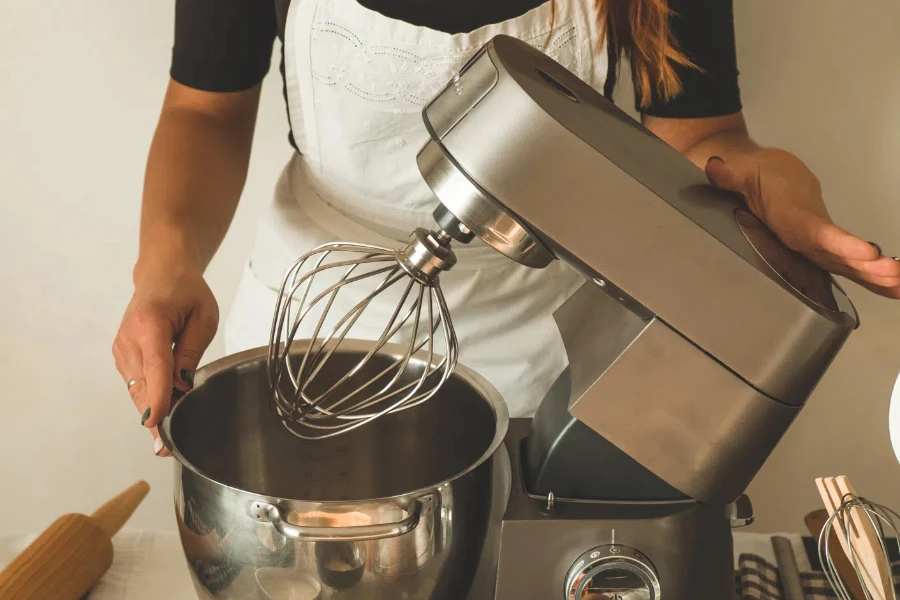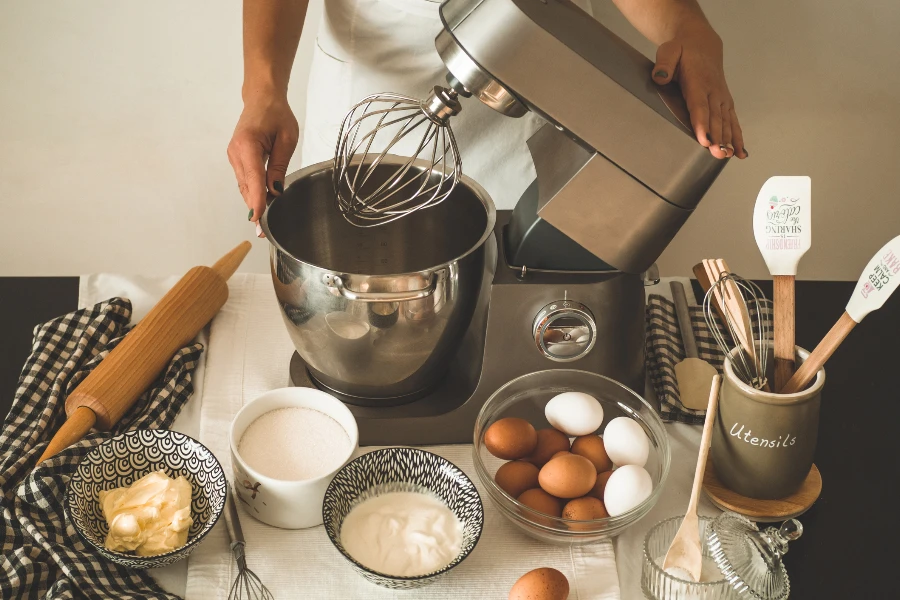The kitchen mixer has become an indispensable tool for both novice cooks and professional chefs alike. Its ability to simplify and expedite the cooking process is unmatched, making it a staple in kitchens around the globe. In this article, we’ll explore the essential aspects of kitchen mixers that users care most about, including their types, features, maintenance, choosing the right mixer, and the impact of technology on these culinary tools. Join us as we delve into the versatile world of kitchen mixers, providing you with the knowledge to make an informed decision on your next kitchen appliance.
Table of Contents:
– Understanding the different types of kitchen mixers
– Key features to look for
– Maintenance and care tips
– How to choose the right kitchen mixer
– The impact of technology on kitchen mixers
Understanding the different types of kitchen mixers

Kitchen mixers come in a variety of types, each designed to meet specific needs and preferences. The most common types include stand mixers, hand mixers, and dough mixers. Stand mixers are robust, offering various attachments for tasks beyond mixing, such as pasta making and meat grinding. Hand mixers, on the other hand, are compact and ideal for smaller kitchens or tasks that require more control. Dough mixers, specifically designed for bread makers, have powerful motors to handle dense doughs. Understanding the differences between these types can help in narrowing down the best option for your culinary projects.
Each type of mixer has its unique set of advantages. Stand mixers are typically more powerful, making them perfect for heavy-duty tasks, but they also take up more counter space. Hand mixers offer flexibility and ease of storage, ideal for occasional baking or when space is at a premium. Dough mixers are specialized tools that ensure consistent results in bread making, appealing to those who are passionate about baking.
The choice between these types often comes down to the user’s specific needs. For instance, a home baker who enjoys making a variety of recipes might lean towards a stand mixer for its versatility, while someone with limited kitchen space might prefer the convenience of a hand mixer.
Key features to look for

When considering a kitchen mixer, several key features stand out as particularly important. Speed settings are crucial, as they allow for precise control over the mixing process, ensuring that ingredients are blended to the perfect consistency. Another important feature is the type of attachments available. From dough hooks to whisk attachments, the variety of tools can significantly expand the functionality of your mixer.
The size and capacity of the mixer are also important considerations. For those who frequently cook in large batches, a mixer with a larger bowl capacity will be more efficient. Conversely, for those with limited space or who cook in smaller quantities, a compact model would be more appropriate.
Durability is another critical factor. A well-constructed mixer can last for years, making it a worthwhile investment for any kitchen. Look for mixers with solid construction and high-quality materials to ensure longevity and consistent performance.
Maintenance and care tips

Proper maintenance and care are essential to extending the life of your kitchen mixer. Regular cleaning after each use is crucial to prevent buildup and ensure sanitary conditions. Most mixers come with detachable parts that are dishwasher safe, making cleanup more manageable. However, it’s important to read the manufacturer’s instructions regarding care and cleaning to avoid any damage.
Lubrication of moving parts, such as gears and attachments, can also help in maintaining the mixer’s performance. This, however, should be done according to the manufacturer’s recommendations, using the appropriate type of lubricant.
Storing your mixer properly can also prevent damage. If space allows, keeping your stand mixer on the countertop avoids the wear and tear associated with frequent moving. For hand mixers, storing them in a dry place can prevent any electrical issues.
How to choose the right kitchen mixer

Choosing the right kitchen mixer involves considering your cooking habits, space, and budget. Start by assessing the types of recipes you most frequently make. This will help determine the mixer’s required capacity and power. For instance, if you’re into baking bread, a dough mixer with a powerful motor might be necessary.
Space is another critical consideration. Measure your kitchen space to ensure the mixer fits comfortably without cluttering your countertop. Also, consider the weight of the mixer if you plan to store it in a cabinet and need to move it frequently.
Budget plays a significant role in the decision-making process. While it’s tempting to opt for cheaper models, investing in a high-quality mixer can be more cost-effective in the long run due to its durability and performance.
The impact of technology on kitchen mixers

Technology has significantly impacted the development of kitchen mixers, making them more versatile and efficient. Modern mixers come equipped with features such as digital timers, programmable settings, and even connectivity options for smart kitchens. These advancements not only make the mixers more user-friendly but also allow for more precise control over the mixing process.
The introduction of energy-efficient motors has also been a game-changer, reducing electricity consumption without compromising on performance. Moreover, the design of kitchen mixers has evolved, with manufacturers focusing on ergonomics and ease of use to enhance the user experience.
As technology continues to advance, we can expect kitchen mixers to become even more integral to the cooking process, offering features that cater to the needs of modern cooks and chefs.
Conclusion:
Kitchen mixers are essential tools that simplify cooking and baking, making them a valuable addition to any kitchen. By understanding the different types, key features, maintenance tips, and how to choose the right one, you can make an informed decision that meets your culinary needs. Additionally, staying informed about the latest technological advancements can help you select a mixer that offers both efficiency and convenience. Whether you’re a seasoned chef or a cooking enthusiast, a kitchen mixer can elevate your cooking experience, allowing you to explore new recipes with ease.




